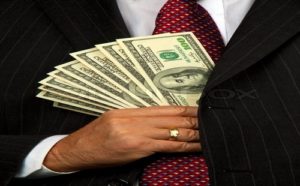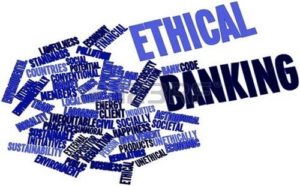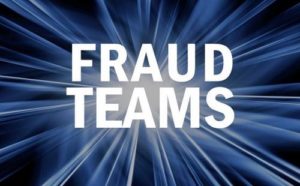The Top Three Banks: Jp Morgan, Bank of America, and Wells Fargo. All Told, During the First Quarter of This Year, the Moneylenders Racked up $2.5 Billion in Overdraft Fees from Consumers.
The money changers in the temple courts were similar to tax collectors in that they extorted money from their own people. They were more than ordinary businessmen. They were seeking to profit financially from the worship of God. Wherever passion and zeal are found, there will also be those who seek to profit from that zeal. Paul wrote to Timothy about such people, false teachers who found a way to make a fortune off the gospel (1 Timothy 6:5). Modern versions of the money changers flood the airways, promising to exchange your hard-earned dollars for blessings, healing, and God’s favor. For a suggested donation, they will supposedly pray for you or promise virtually anything you want. For another twenty bucks, they will sell you a book about how to wrangle prosperity, health, or spiritual insights from God. And, like the simony of the first-century money changers, the practices of modern religious price gougers only aid those worshipers who have enough cash to purchase their wares.
It’s been a while since I’ve gone off on a rant — not that there has been any shortage of outrage to be had.
The outrage spilled into the streets as angry mobs burned and looted of some of our most blighted areas — including my local barbershop.
But this isn’t just a symptom of living in Baltimore. It seems like the whole country has started to treat crime, drama, and violence as the status quo. Case in point: the lack of outcry over the latest criminal activities of some of the country’s biggest banks…
J.P. Morgan Chase, Bank of America, Citigroup, and other mega-banks were found manipulating currencies in order to pad their coffers with ill-gotten gains. Four pleaded guilty to conspiring to manipulate the price of the dollar and the euro. Most outrageously, bankers and traders were caught in online chat rooms joking about it all. One trader summed it up best: “If you ain’t cheating, you ain’t trying.”
Regulators slapped them with $5.6 billion in fines…
You could be forgiven if you didn’t grab a pitchfork and torch and head down to Wall Street; it seems like the nation met the news with a collective shrug. In fact, the share prices of a couple of these banks actually WENT UP after the news broke.
We’ve become so accustomed to bank thievery and conspiracy that it almost isn’t even news anymore.
These big banks have paid out over $184 billion in fines for crimes like manipulating markets, rigging interest rates, and sticking homeowners with predatory mortgages — and that’s just since 2009!
But the banks are having no trouble paying out these fines, and seem to treat it as the cost of doing business. According to the FDIC, U.S. banks have raked in about $700 billion in profits between 2007 and 2014. So while $5.4 billion sure sounds like a boatload of money, the banks can cover that easily with one simple trick.
They’ll just make you pay them…
This headline finally fired my outrage meter back into gear: Overdraft fees top $1 billion at the big 3 banks.
That’s only the top three banks: JP Morgan, Bank of America, and Wells Fargo. All told, during the first quarter of this year, the moneylenders racked up $2.5 billion in overdraft fees from consumers.
That is a ton of cash scraped from our pockets in a very short amount of time.
The average fee for an account overdraft is $30 — over 10% more than it was in 2009.
In typical Orwellian fashion, banks often refer to these fees as “bounce protection” or “courtesy overdraft.” But a courtesy it is not. Most of these overdraft fees are essentially tiny, short-term loans at astronomical interest rates. According to Bankrate, the markup on these fees would make a payday lender blush…
Someone who overdraws their account at the ATM by $20, and is charged the median overdraft fee of $27, would incur an annual percentage rate of 3520 percent if they repaid the loan in two weeks.
I’d wager that nobody in their right mind would agree to a loan with several thousand percent interests.
If this rate keeps up, these shysters will reap almost $10 billion this year by preying on their customers. That more than covers the latest round of fines from illegally stealing money from investors the world over.
There are a couple of ways you can fight back against this overdraft oppression.
The simplest thing you can do is call and complain. It sounds obvious, but in a non-scientific survey of a dozen folks I know who have had overdraft fees, only two actually called to have the charges reversed. Both were successful in hanging on to that $30.
You have nothing to lose by simply calling your local branch and asking them to do you a courtesy, especially if you don’t overdraft often.
But the best way to avoid overdraft fees, in general, is to opt-out of overdraft protection entirely. That way if you don’t have the cash to cover your purchase, you cannot make the purchase. While it may be embarrassing to have your card declined in the grocery line, it sure beats paying bank thousands of percent in interest. Source
And it’s at least one less thing to be outraged about.
StevieRay Hansen
Editor, Bankster Crime

![]()




